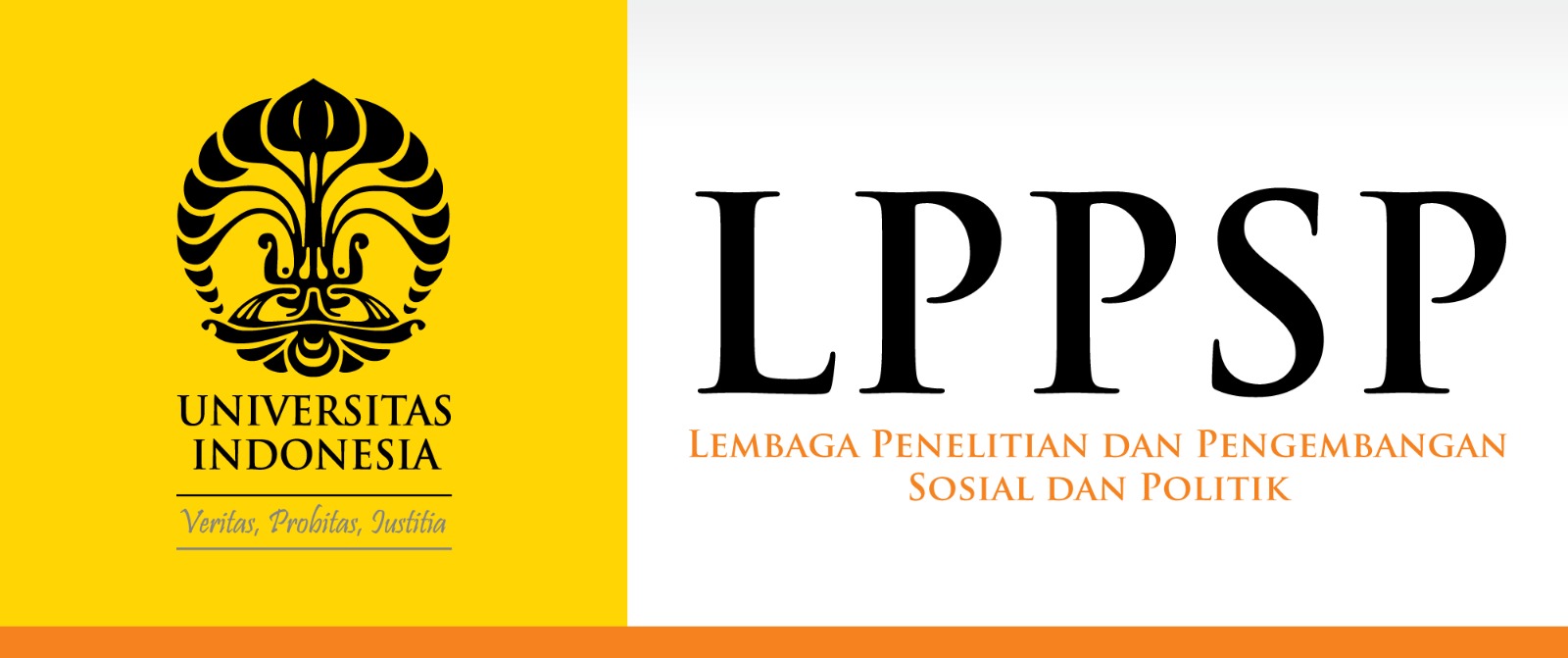JURNAL KOMUNIKASI INDONESIA
Abstract
Artikel ini hendak memperkenalkan seorang tokoh ilmuwan komunikasi kritis abad XX dan XXI sekaligus juga seorang aktivis, yaitu Robert W. McChesney. Chesney adalah penulis produktif yang banyak menyoroti sekaligus mengritik industri media di Amerika yang mendominasi di dalam dan luar negeri. Chesney meneruskan tradisi ilmuwan komunikasi yang telah dirintis sebelumnya oleh Herbert Schiller dan Dallas Smythe ataupun Noam Chomsky, yang utamanya mengritik struktur kepemilikan industri media, lalu juga mengritik orientasi isi media yang terlalu komersial dan sensasional. Tulisan ini barulah melakukan suatu pemetaan awal pemikiran Chesney dan akar-akar pemikiran yang mempengaruhi Chesney, salah satunya adalah Karl Marx.
This article tries to introduce a 20th and 21st century critical communication scholar who is also an activist, Robert W. McChesney. Chesney is a productive writer who often highlights and criticizes the US media industry that dominates domestically and globally. Chesney continues the traditions of previous communication scholars such as Herbert Schiller, Dallas Smythe, or Noam Chomsky, particularly in criticizing the ownership of media industries and the orientation of media content that has been much too commercialized and sensationalized. This article thus maps out Chesney’s early works and the theoretical roots that influences Chesney's arguments, among others Karl Marx.
References
Althusser, L. & Balibar, E. (1968). Reading Capital. London; New York: Verso.Althusser, L. (1969). For Marx. London; New York: Verso. Althusser, L. (1971). Lenin and Philosophy, and Other Essays. New York: New York University
Press.Baran, P.A. & Sweezy, P.M. (1969). Monopoly Capital: An Essay on the American Economic and Social Order. New York & London: Modern Book Paperbacks.Becker, J., Hedebro, G. & Paldan, L. (Eds.) (1986). “Essays
to Honor Herbert I. Schiller”, dalam Communication and Domination. Norwood, N.J.: Ablex.Chomsky, N. & Herman, E.S. (1979). The Washington Connection and Third World Fascism (The Political Economy of Human
Rights: Volume I). Boston: South End Press.Chomsky, N. (1989). Necessary Illusions: Thought Control in Democratic Societies. UK: Pluto Press.Dorfman, A. & Mattelart, A. (1991). How to Read Donald Duck: Imperialist
Ideology in the Disney Comic. New York:International General.Gandy, O.H. (1982). Beyond Agenda Setting: Information Subsidies and Public Policy. Norwood, N.J.: Ablex Publishing Corp.Golding, P. & Murdock, G. (1997).
The Political Economy of the Media. Cheltenham, England; Bookfield, Vt: Edward ElgarGramsci, A. (1971). Selection from the Prison Notebooks. London: Lawrence & Wishart.Hall, S. (1977). “Culture, media, and the
“ideological effect””, dalam J. Curran, M. Gurevitch, & J. Woollacott (Eds.), Mass Communication and Society. London: Edward Arnold.Hall, S. (1982). “The rediscovery of ideology: the return of the repressed in media
studies”, dalam M. Gurevitch, T. Bennett, J. Curran, & J. Wollacott, Culture, society, and the media. London: Methuen.Hall, S. (1986). “Media power and class power”, dalam J. Curran, J. Ecclestone, G. Oakley, and R.
Richardson (Eds.), Bending Reality. London: Pluto.Harbermas, J. (1991). The Structural Transformation of the Public Sphere: An Inquiry into a Category of Bourgeouis Society. Massachusetts: MIT Press.Hardt, H. (1979).
Social Theories of the Press: Early German and American Perspectives. Beverly Hills; London: Sage Publications.Hardt, H. (1992). Critical Communication Studies: Essays on Communication, History, and Theory and
America. London: Routledge.Herman E.S. & Chomsky, N. (1988). Manufacturing Consent: the Political Economy of the Mass Media. USA: Pantheon Books.Herman, E., McChesney, R.W., & Herman, E.S. (1997). Global
Media: The New Missionaries of Global Capitalism. New York: Continuum.Lent, J. (1995). A Different Road Taken: Profiles in Critical Communication. Boulder, Co: Westview Press. Littlejohn, S.W. & Foss, K.A. (2011).
Theories of Human Communication. USA: Waveland Press.Lowenthal, L. & Jay, M. (1987). An Unmastered Past: The Autobiographical Reflenctions of Leo Lowental. California: University of California Press.MacPherson,
C.B. & Cunningham F. (1962). The Political Theory of Possessive Individualism: Hobbes to Locke. USA: Oxford University PressMattelart. A. & Siegelaub, S. (Eds.) (1979). Communication and Class Struggle. Volume I:
Capitalism, imperialism. New York: International Mass Media Center.Mattelart, A. & Siegelaub, S. (Eds.) (1983). Communication and Class Struggle. Volume 2: Liberation, socialism. New York: International Mass Media
Research Center.Mattelart, A. (1991). Advertising International: the Privatisation of Public Space. London: Routledge.Mattelart, A. & Mattelart, M. (1992). Rethinking Media Theory: Signposts and New Directions.
Minneapolit: University of Minnesota Press.Mattelart, A. (1994). Mapping World Communication: War, Progress, Culture. Minneapolis: University of Minnesota Press.McChesney, R.W. (1997). Corporate Media and the
Threat to Democracy. New York: Seven Stories Press.McChesney, R.W., Wood, E.M., & Foster, J.B. (Eds.) (1998). Capitalism and the Information Age: the Political Economy of the Global Communication Revolution. New
York: New York University Press.McChesney, R.W. (1999). Rich Media, Poor Democracy: Communication Politics in Dubious Times. Urbana & Chicago: University of Illinois Press.McChesney, R.W. (2007). Communication
Revolution: Critical Junctures and the Future of Media. New York: New Press.McChesney, R.W. (2008). The Political Economy of Media: Enduring Issues, Emerging Dilemmas. New York: Monthly Review Press.McLuhan, M.
(1962). The Guttenberg Galaxy: The Making of Typographic Man. Canada: University of Toronto Press.McLuhan, M. & Fiore, Q. (1967). The Medium is the Message. USA: Bantam Books.McLuhan, M. (1969). Understanding
the Media: The Extension of Man. New York: Taylor & Francis Group.Mosco, V. & Wasko, J. (1988). The Political Economy of Information. Wisconsin: The University of Wisconsin Press.Mosco, V. (1989). The Pay-per
Society: Computer and Communication in the Information Age. Norwood, NJ: Ablex.Mosco, V. (1996). The Political Economy of Communication. London: Sage Publications. Murdock, G. & Golding, P. (1974). “For a political
economy of mass communications”,dalam R. Miliband & J. Saville (Eds.), The Socialist Register 1973. London: Merlin Press.Postman, N. & Weingartner, C. (1980). Teaching as a Subversive Activity. New York: Dell
Publishing.Postman, N. (1986). Amusing Ourselves to Death. London: Heinemann. Rojek, C. (2003). Stuart Hall: Key Contemporary Thinkers. Cambridge: Polity. Schiller, D. (1982). Telematics and Government. Norwood,
N.J.: Ablex Publishing Corp.Schiller, D. (1999). Digital Capitalism: Networking the Global Market System. USA: MIT Press.Schiller, H.I. (1971). Mass Communications and American Empire. Boston: Beacon Press.Schiller, H.I.
& Phillips, J.D. (Eds.) (1972). Superstate – Readings in the Military-Industrial Complex. Urbana: University of Illinois Press.Schiller, H.I. (1973). The Mind Managers. Boston: Beacon Press.Schiller, H.I. & Sharpe, M.E. (1976).
Communication and Cultural Domination. New York: International Arts and Sciences Press.Schiller, H.I. (1981). Who Knows: Information in the Age of the Fortune 500. Norwood, NJ: Ablex/Greenwood.Schiller, H.I. (1984).
Information and the Crisis Economy. Norwood, NJ: Ablex/Greenwood.Schiller, H.I. (1991). Culture Inc.: The Corporate Takeover of Public Expression. New York: Oxford University Press.Schiller, H.I. (1996). Information
Inequality: The Deepening Social Crisis in America. New York: Routledge.Simpson, C. (1994). Science of Coercion: Communication Research and Psychological Warfare 1945-1960. USA: Oxford University Press.Smythe,
D.W. (1957). The Structure and Policy of Electronic Communication. Urbana: University of Illinois Press.Smythe, D.W. (1977). “Communications: Blindspot of Western Marxism”, Canadian Journal of Political and Social
Theory, 1(1).Smythe, D.W. (1981). Dependency Road: Communications, Capitalism, Consciousness, and Canada. Norwood, NJ: Ablex Publishing Corp.Smythe, D.W. (1994). Counterclockwise: Perspectives on
Communication. Boulder, CO: Westview.Sweezy, P. (1970). The Theory of Capitalist Development: Principles of Marxian Political Economy. New York & London: Modern Reader Paperbacks.Wasko, J. (1982). Movies and
Money: Financing the American Film Industry. Norwood, N.J.: Ablex Publishing Corp.Wasko, J. (1994). Hollywood in the Information Age: Beyond the Silver Screen. Great Britain: Polity Press.Wasko, J. (2001).
Understanding Disney: The Manufacture of Fantasy. Malden, MA: Blackwell Publishers.Wasko, J., Phillips, M., & Meehan, E.R. (2001). Dazzled by Disney: the Global Disney Audiences Project. London & New York: Leicester
University Press.Wasko, J. (2003). How Hollywood Works. London: Sage Publications.Williams, R. (1958). Culture and Society, 1780-1950. New York: Columbia University Press.Williams, R. (1961). The Long Revolution.
Great Britain: Broadview Press.Williams, R. (1974). Television: Technology and Cultural Form. USA: Schocken Books.Williams, R. (1976). Keywords: A Vocabulary of Culture and Society. USA: Oxford University
Press.Williams, R. (1978). Marxism and Literature. USA: Oxford University Press.Williams, R. (1980). Problems in Materialism and Culture: Selected Essays. London; New York: Verso.Williams, R. (1981). Culture. London: Fontana.
Recommended Citation
Haryanto, Ignatius
(2012)
"Robert W. McChesney, Ilmu Komunikasi, dan Tradisi Kritis,"
JURNAL KOMUNIKASI INDONESIA: Vol. 1:
No.
2, Article 1.
DOI: 10.7454/jki.v1i2.7815
Available at:
https://scholarhub.ui.ac.id/jkmi/vol1/iss2/1
Included in
Gender, Race, Sexuality, and Ethnicity in Communication Commons, International and Intercultural Communication Commons, Social Influence and Political Communication Commons




